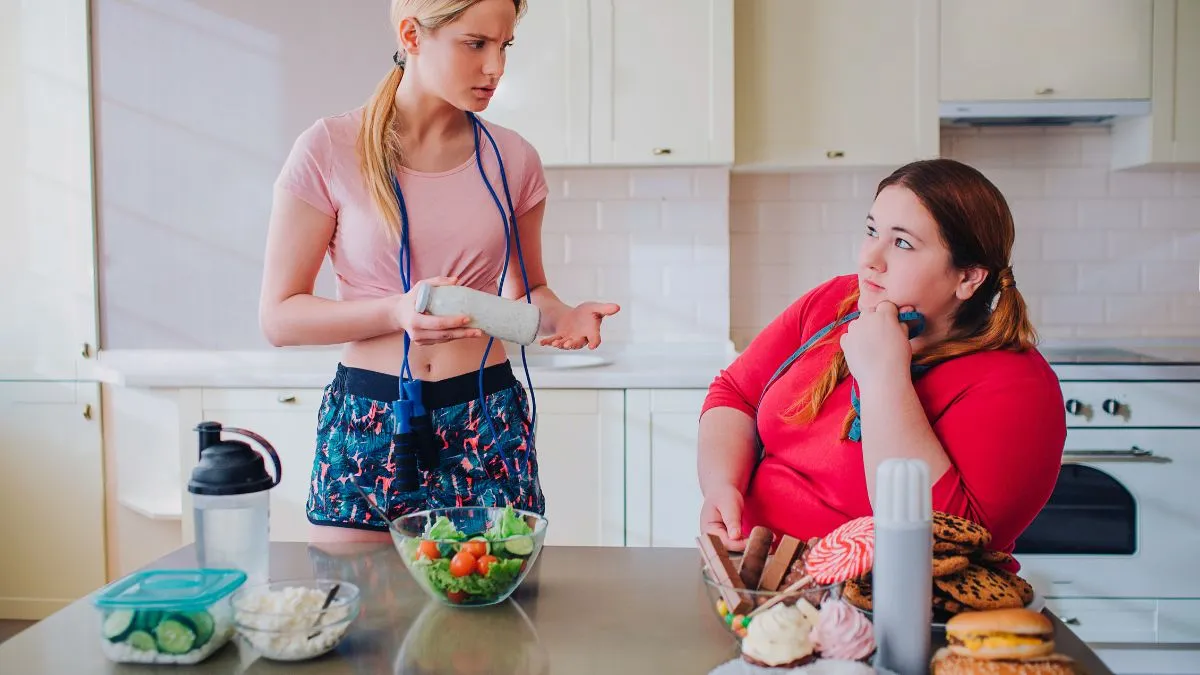- By Bornika Das
- Sat, 06 Sep 2025 08:02 PM (IST)
- Source:JND
Most women simply dismiss minor health issues, citing stress, insomnia, or the usual "growing old." But the fact is, our bodies begin to send cues about dietary insufficiencies much sooner than we know it. From inexplicable tiredness and hair loss to fragile nails, mood swings, or continuous digestive problems, these aren't mere everyday things. They are the body's means of waving red flags, letting you know that something is lacking in your diet. Brushing them aside can snowball into more significant health issues, particularly as you age from your 20s to your 40s.
Each phase of life has its own nutritional requirements, and women specifically go through transformations that require special attention. In your 20s, perhaps iron and calcium; in your 30s, protein and folic acid; and in your 40s, nutrients to help ensure hormonal balance, heart health, and robust bones. Physicians caution that these signals are not to be ignored. In conversation with The Daily Jagran, Dr. Manisha Kulkarni, Sr. Consultant – OBGYN and IVF, Sahyadri Hospitals Momstory, Hadapsar, Pune, shares that with easy, conscious eating and prompt response, many of these problems can be fixed before they become chronic health issues.
Your 20s: The ‘I’ll Be Fine’ Years
In 20s, life usually feels like it’s running at full speed. College, first jobs, late-night outings, endless coffees to stay awake, it’s all fun until the body starts reacting. If you feel exhausted even after a good night’s sleep, that’s not normal “youth tiredness.” It can be an iron or vitamin B12 deficiency. Dr. Manisha Kulkarni states, “Another quiet red flag is ignoring calcium and vitamin D.” At this age, bones are still storing strength for the future, and if you keep skipping milk, curd, or sunlight, you’ll only realise the damage in your 40s.
ALSO READ: 5 Healthy Tips For Women To Stay Happy And Fit In Their 40s
Your 30s: The Juggle Years
This is the decade where women tend to put themselves last. Between deadlines, kids, family expectations, and endless multitasking, food becomes whatever is quick and easy. But if your hairbrush suddenly looks fuller than usual, if nails chip easily, or if skin has lost its glow, these are not just beauty problems. Dr. Manisha Kulkarni states, “They usually mean your diet lacks protein, healthy fats, or iron. Constipation, bloating, or an upset stomach? That’s a classic sign of not eating enough fibre.” And if pregnancy is on your mind, folic acid and balanced meals are non-negotiable. Food cravings, brain fog, or sudden mood dips again, these aren’t just “stress.” They’re your body waving a red flag.
-1757103895112.jpg)
Nutritional Red Flags In Women (Image Credits: Canva)
Your 40s: When Hormones Start Whispering
By the time a woman hits her 40s, her metabolism has slowed, and hormones start to shift quietly towards perimenopause. Many notice weight that won’t budge, disturbed sleep, or constant fatigue. These are not just “signs of ageing.” They often mean low vitamin D, magnesium, or protein intake. Dr. Manisha Kulkarni mentions, “Frequent headaches or sugar crashes can be your body’s way of saying it can’t handle all the processed food or long meal gaps.” And heart health becomes far more important here; ignoring omega-3 fats, fibre, and antioxidants is like setting yourself up for trouble in silence.
ALSO READ: 5 Common Health Issues In Women And Dietary Shifts To Fix| Know From Nutritionist
The biggest mistake women make is thinking these red flags are minor or temporary. But small issues add up. Nutrition isn’t just about fitting into clothes it affects mood, immunity, bones, skin, sleep, and future health. A simple home-cooked plate with vegetables, lentils, whole grains, nuts, and fruits often does more magic than fancy supplements. Yes, supplements have their place when a doctor prescribes them, but nothing replaces real food. The body always speaks through tiredness, hair fall, digestive issues, dull skin, or even poor concentration. The real question is, are you listening?


